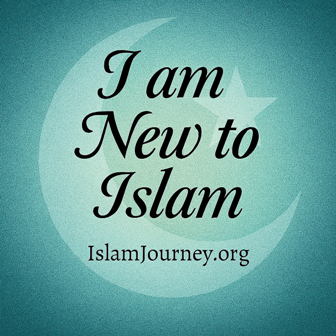Mosques, or masajid, are more than places of worship in Islam; they are vibrant centers that nurture faith, unity, and social good. From the time of Prophet Muhammad (PBUH), mosques have been hubs for spiritual growth, education, and community support, shaping strong Muslim societies. The Holy Quran and authentic Hadith highlight their significance, offering timeless guidance for Muslims worldwide.
Understanding the Role of Mosques in Islam
What Is a Mosque?
A mosque is a sacred space where Muslims perform Salah (prayer), seek knowledge, and engage in community activities. The Quran describes their spiritual importance:
Surah An-Nur, Ayah 36
فِی بُیُوتٍ أَذِنَ ٱللَّهُ أَن تُرۡفَعَ وَیُذۡكَرَ فِیهَا ٱسۡمُهُۥ یُسَبِّحُ لَهُۥ فِیهَا بِٱلۡغُدُوِّ وَٱلۡـَٔاصَالِ
In houses (mosques), which Allah has ordered to be raised (to be cleaned, and to be honoured), in them His Name is glorified in the mornings and in the afternoons or the evenings,
[24:36]
This verse emphasizes mosques as places of Allah’s remembrance, central to Muslim life.
Historical Significance
The Prophet’s Mosque in Madinah, built by Prophet Muhammad (PBUH), was a model for community engagement, hosting prayers, education, and social services. The Prophet (PBUH) said, “Whoever builds a mosque for Allah, Allah will build for him a house in Paradise” (Sahih Bukhari, Hadith 450). This Hadith underscores the eternal reward of supporting mosques, encouraging their role in community building.
Role 1: Centers for Worship and Spiritual Growth
Facilitating Salah and Dhikr
Mosques are the primary venues for the five daily prayers and Jumu’ah (Friday prayer), fostering spiritual discipline. The Quran instructs:
Surah Al-Baqarah, Ayah 43
وَأَقِیمُوا۟ ٱلصَّلَوٰةَ وَءَاتُوا۟ ٱلزَّكَوٰةَ وَٱرۡكَعُوا۟ مَعَ ٱلرَّ ٰكِعِینَ
And perform As-Salat (Iqamat-as-Salat), and give Zakat, and Irka’ (i.e. bow down or submit yourselves with obedience to Allah) along with Ar-Raki’un.
[2:43]
This verse highlights the communal aspect of prayer, strengthened by mosques.
Practical Example
A busy professional attending Fajr prayer at the mosque starts their day with peace, while Tahajjud sessions during Ramadan deepen their connection to Allah.
Spiritual Programs
Mosques host Quranic recitation circles and Dhikr sessions, enhancing spiritual growth. For instance, a mosque in London might organize nightly Taraweeh prayers, drawing families together.
Role 2: Hubs for Islamic Education
Teaching Quran and Sunnah
Mosques serve as schools for learning the Quran, Hadith, and Islamic sciences. The Prophet (PBUH) said, “The best among you are those who learn the Quran and teach it” (Sahih Bukhari, Hadith 5027).
Quranic Guidance
The Quran encourages knowledge:
“Say: ‘My Lord, increase me in knowledge.’”
Surah Taha, Ayah 114
فَتَعَـٰلَى ٱللَّهُ ٱلۡمَلِكُ ٱلۡحَقُّۗ وَلَا تَعۡجَلۡ بِٱلۡقُرۡءَانِ مِن قَبۡلِ أَن یُقۡضَىٰۤ إِلَیۡكَ وَحۡیُهُۥۖ وَقُل رَّبِّ زِدۡنِی عِلۡمࣰا
Then High above all be Allah, the True King. And be not in haste (O Muhammad SAW) with the Quran before its revelation is completed to you, and say: “My Lord! Increase me in knowledge.”
[20:114]
This verse inspires mosques to educate communities.
Real-Life Impact
A mosque in New York might offer weekend Quran classes for kids, teaching Surah Al-Fatiha, or adult courses on Tafsir, empowering Muslims to understand their faith. Historical example: The Prophet’s Mosque was a learning center where Aisha (RA) taught Hadith.
Role 3: Fostering Unity and Brotherhood
Bringing Muslims Together
Mosques unite diverse Muslims, transcending cultural and ethnic divides. The Quran emphasizes unity:
Surah Aal-E-Imran, Ayah 103
وَٱعۡتَصِمُوا۟ بِحَبۡلِ ٱللَّهِ جَمِیعࣰا وَلَا تَفَرَّقُوا۟ۚ وَٱذۡكُرُوا۟ نِعۡمَتَ ٱللَّهِ عَلَیۡكُمۡ إِذۡ كُنتُمۡ أَعۡدَاۤءࣰ فَأَلَّفَ بَیۡنَ قُلُوبِكُمۡ فَأَصۡبَحۡتُم بِنِعۡمَتِهِۦۤ إِخۡوَ ٰنࣰا وَكُنتُمۡ عَلَىٰ شَفَا حُفۡرَةࣲ مِّنَ ٱلنَّارِ فَأَنقَذَكُم مِّنۡهَاۗ كَذَ ٰلِكَ یُبَیِّنُ ٱللَّهُ لَكُمۡ ءَایَـٰتِهِۦ لَعَلَّكُمۡ تَهۡتَدُونَ
And hold fast, all of you together, to the Rope of Allah (i.e. this Quran), and be not divided among yourselves, and remember Allah’s Favour on you, for you were enemies one to another but He joined your hearts together, so that, by His Grace, you became brethren (in Islamic Faith), and you were on the brink of a pit of Fire, and He saved you from it. Thus Allah makes His Ayat (proofs, evidences, verses, lessons, signs, revelations, etc.,) clear to you, that you may be guided.
[3:103]
This verse calls for collective strength, facilitated by mosques.
Community Events
Mosques host Eid prayers, Iftar gatherings, and cultural festivals, strengthening bonds. For example, a mosque in Toronto might organize a multicultural Eid al-Fitr celebration, uniting Pakistani, Somali, and Arab Muslims.
Historical Example
In Madinah, the Prophet (PBUH) fostered brotherhood between Muhajirun and Ansar at his mosque, setting a model for unity (Sahih Bukhari, Hadith 3780).
Role 4: Providing Social and Welfare Services
Supporting the Needy
Mosques distribute Zakah (charity) and food, fulfilling Islamic welfare principles. The Quran says:
Surah At-Tawbah, Ayah 60
۞ إِنَّمَا ٱلصَّدَقَـٰتُ لِلۡفُقَرَاۤءِ وَٱلۡمَسَـٰكِینِ وَٱلۡعَـٰمِلِینَ عَلَیۡهَا وَٱلۡمُؤَلَّفَةِ قُلُوبُهُمۡ وَفِی ٱلرِّقَابِ وَٱلۡغَـٰرِمِینَ وَفِی سَبِیلِ ٱللَّهِ وَٱبۡنِ ٱلسَّبِیلِۖ فَرِیضَةࣰ مِّنَ ٱللَّهِۗ وَٱللَّهُ عَلِیمٌ حَكِیمࣱ
As-Sadaqat (here it means Zakat) are only for the Fuqara’ (poor), and Al-Masakin (the poor) and those employed to collect (the funds); and for to attract the hearts of those who have been inclined (towards Islam); and to free the captives; and for those in debt; and for Allah’s Cause (i.e. for Mujahidun – those fighting in the holy wars), and for the wayfarer (a traveller who is cut off from everything); a duty imposed by Allah. And Allah is All-Knower, All-Wise.
[9:60]
This verse outlines Zakah’s recipients, often managed by mosques.
Practical Services
Mosques offer food banks, shelters, and financial aid. A mosque in Chicago might run a weekly soup kitchen, helping both Muslims and non-Muslims. They also provide marriage counseling and funeral services, supporting life’s milestones.
Example
During the COVID-19 pandemic, mosques worldwide distributed groceries, reflecting the Prophet’s (PBUH) care for the poor (Sahih Muslim, Hadith 2588).
Role 5: Platforms for Dawah and Outreach
Sharing Islam
Mosques are centers for Dawah, inviting others to learn about Islam. The Prophet (PBUH) said, “Convey from me, even if it is one verse” (Sahih Bukhari, Hadith 3461).
Quranic Encouragement
The Quran promotes inviting to good:
“Let there arise out of you a group of people inviting to all that is good, enjoining what is right…”
Surah Aal-E-Imran, Ayah 104
وَلۡتَكُن مِّنكُمۡ أُمَّةࣱ یَدۡعُونَ إِلَى ٱلۡخَیۡرِ وَیَأۡمُرُونَ بِٱلۡمَعۡرُوفِ وَیَنۡهَوۡنَ عَنِ ٱلۡمُنكَرِۚ وَأُو۟لَـٰۤىِٕكَ هُمُ ٱلۡمُفۡلِحُونَ
Let there arise out of you a group of people inviting to all that is good (Islam), enjoining Al-Ma’ruf (i.e. Islamic Monotheism and all that Islam orders one to do) and forbidding Al-Munkar (polytheism and disbelief and all that Islam has forbidden). And it is they who are the successful.
[3:104]
Modern Examples
Mosques hold open houses for non-Muslims, explaining Islamic practices. A mosque in Sydney might host a “Meet a Muslim” event, dispelling myths and building bridges. They also distribute Quran translations and host interfaith dialogues.
Role 6: Empowering Youth and Future Generations
Engaging Young Muslims
Mosques provide youth programs, like sports and study circles, to nurture faith and leadership. The Prophet (PBUH) said, “A young person who grows up in the worship of Allah will be shaded by Allah on the Day of Resurrection” (Sahih Bukhari, Hadith 660).
Quranic Insight
The Quran values guiding youth:
Surah At-Tahrim, Ayah 6
یَـٰۤأَیُّهَا ٱلَّذِینَ ءَامَنُوا۟ قُوۤا۟ أَنفُسَكُمۡ وَأَهۡلِیكُمۡ نَارࣰا وَقُودُهَا ٱلنَّاسُ وَٱلۡحِجَارَةُ عَلَیۡهَا مَلَـٰۤىِٕكَةٌ غِلَاظࣱ شِدَادࣱ لَّا یَعۡصُونَ ٱللَّهَ مَاۤ أَمَرَهُمۡ وَیَفۡعَلُونَ مَا یُؤۡمَرُونَ
O you who believe! Ward off from yourselves and your families a Fire (Hell) whose fuel is men and stones, over which are (appointed) angels stern (and) severe, who disobey not, (from executing) the Commands they receive from Allah, but do that which they are commanded.
[66:6]
Practical Programs
Mosques run Quran memorization classes, debate clubs, and summer camps. A mosque in Dubai might organize a youth Hajj workshop, teaching rituals. These activities keep youth connected to faith, countering negative influences.
Example
The Companions (RA), like Ali ibn Abi Talib (RA), learned at the Prophet’s Mosque, inspiring modern youth programs.
Addressing Common Misconceptions
Misconception 1: Mosques Are Only for Prayer
Mosques are multifunctional, hosting education, charity, and social events, as modeled by the Prophet’s Mosque (Sahih Bukhari, Hadith 1190).
Misconception 2: Mosques Are Exclusive
Mosques welcome non-Muslims for learning and dialogue, reflecting Islam’s openness (Surah Aal-E-Imran, Ayah 104).
Challenge: Limited Resources
Some mosques lack funds for programs. Solution: Community donations and volunteering can sustain activities, as the Prophet (PBUH) encouraged supporting mosques (Sahih Bukhari, Hadith 450).
Challenge: Engaging Diverse Communities
Cultural differences can divide congregations. Solution: Inclusive events, like multilingual Khutbahs, promote unity, following the Quranic call for togetherness (Surah Aal-E-Imran, Ayah 103).
Practical Ways to Support Your Local Mosque
- Attend Regularly: Join daily or Jumu’ah prayers.
- Volunteer: Help with classes or charity drives.
- Donate: Contribute to mosque maintenance or programs.
- Bring Youth: Encourage kids to join mosque activities.
- Invite Others: Share mosque events with neighbors.
Mosques as Pillars of Muslim Communities
Mosques play an indispensable role in building strong Muslim communities by serving as centers for worship, education, unity, welfare, Dawah, and youth empowerment. Grounded in the Quran and Hadith, their functions—from hosting Salah to distributing Zakah—create vibrant, faithful societies. Historical examples, like the Prophet’s Mosque, and modern initiatives, like interfaith events, show their enduring relevance. By actively supporting mosques, Muslims can foster spiritual growth and social good, ensuring thriving communities in 2025 and beyond. Let this guide inspire you to engage with your mosque and strengthen the bonds of the Ummah.

